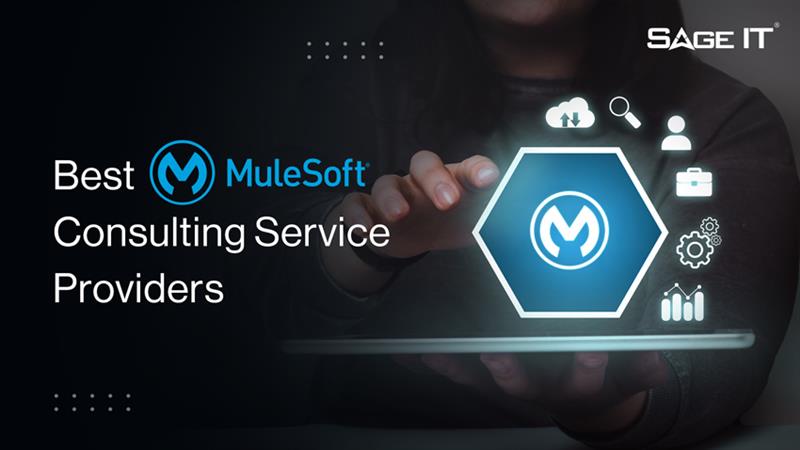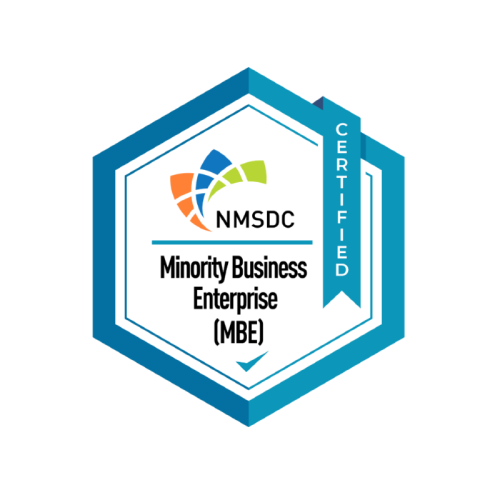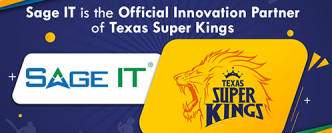If you’re working in IT, you’ve probably heard of iPaaS. But what exactly is it? iPaaS stands for “Integration Platform as a Service” and is a cloud-based platform that enables businesses to integrate various applications and data sources. It provides a centralized hub for managing all types of integrations, including application-to-application (A2A), business-to-business (B2B), and data integrations. In this comprehensive guide, we will break down everything you need to know about iPaaS – from its advantages over traditional integration methods to practical applications and how it works. We’ll also compare iPaaS with other integration mechanisms and explore the top iPaaS solutions available in the market today. Lastly, we’ll take a look at how iPaaS can continue to evolve to meet the ever-changing needs of modern businesses. So whether you’re an IT professional or just curious about this technology, read on to discover more about iPaaS.
Understanding iPaaS
IPaaS streamlines integration, linking diverse systems and applications. It offers a unified platform for integrating varied data sources, enabling seamless data flow across cloud services, legacy systems, and SaaS applications. With support for integration flows, manual processes are reduced, benefiting integration projects and enhancing enterprise integration. Additionally, it empowers the IT team to efficiently manage integration processes, marking a significant advancement over traditional methods. iPaaS plays a crucial role in modern business by simplifying complex integration challenges.
The Concept of Integration Platform as a Service
Supporting digital transformation, iPaaS is pivotal for integration functionality within organizations. Data integration and governance are critical, ensuring seamless data flow across systems. Cloud integration solutions provided by iPaaS vendors cater to various data management needs. These platforms are versatile, enabling integration across different departments and supporting a wide array of use cases. Moreover, iPaaS providers offer robust support for integration apps, aiding in business logic and automation, thereby offering substantial benefits for the IT team.
The Role of iPaaS in Modern Business
In modern business, iPaaS technologies enable seamless integration with cloud systems, applications, and services, promoting efficient data flow. These solutions address the challenges of data silos and support new integrations, enhancing enterprise service bus functionality. Additionally, iPaaS provider’s support teams assist in custom integrations, meeting the unique needs of business users. With its enterprise-level integration and machine learning capabilities, iPaaS plays a vital role in streamlining business operations and facilitating data exchange, aiding in the automation of workflows for the IT team.
Advantages of iPaaS Over Traditional Integration Methods
Advantages of iPaaS Over Traditional Integration Methods IPaaS solutions streamline integration, removing the complexities of traditional approaches. Scalability is a hallmark of iPaaS, supporting integration with diverse applications and systems, while prioritizing security to ensure data protection across integration flows. The flexibility of iPaaS accommodates new applications and cloud computing, enhancing efficiency by seamlessly automating critical business processes. With the IT team’s support, iPaaS stands out as an efficient solution for modern integration needs.
Speed and Efficiency
Enhancing enterprise resource planning and data warehouse integration, iPaaS solutions streamline data flows. Process automation is facilitated by iPaaS technologies, improving data management and business intelligence. The platforms also speed up data integration processes through integration functionality. Quick integration projects are ensured by the iPaaS provider’s support team, meeting business users’ integration needs. Additionally, iPaaS solutions support data lakes integration, promoting efficient data flow management, and demonstrating the efficiency and speed of the technology.
Security and Simplification
IPaaS solutions ensure the governance of data, securing customer relationship management data integration. These technologies support integration apps, ensuring the secure flow of data across various systems and cloud services. iPaaS eliminates data silos, promoting security across cloud apps integration. Additionally, iPaaS providers’ IT teams aid in cloud services integration, ensuring data protection and governance.
Scalability and Flexibility
Scalability and flexibility are key features of iPaaS solutions, supporting integration with various cloud applications to promote scalable integration projects. The technology also enables flexible integration across different departments by supporting business logic. Additionally, iPaaS platforms support legacy systems integration, ensuring scalability and flexibility across integration projects. Furthermore, iPaaS provider’s support team aids in private cloud integration, offering flexibility in integration approaches, and ensures scalable integration solutions by aiding integration with different departments.
Practical Applications of iPaaS
IPaaS solutions facilitate streamlined business processes by supporting the integration of cloud apps, while also aiding in the automation of workflows through the integration of various applications. These platforms enhance case management and API management within cloud systems, and their support team assists small businesses in various integration projects, promoting seamless systems integration. Additionally, iPaaS solutions are effective in supporting traditional integration approaches, thereby aiding the integration of critical business processes. The IT team can leverage iPaaS to achieve these practical applications seamlessly.
Automating Workflows
Automating workflows is a core feature of iPaaS solutions. These platforms support integration with marketing automation tools, enabling automated data flows, thus promoting efficient business processes. Additionally, iPaaS technologies streamline integration functionality, facilitating automation of critical business processes and data management. The support team of iPaaS providers aids in machine learning integration, enabling the automation of data governance processes, further enhancing the automation capabilities of these platforms. Integration apps integration is also supported by iPaaS solutions, promoting the automation of data flow management processes.
Streamlining Business Processes
Streamlining business processes is a critical aspect of iPaaS solutions. These platforms support cloud computing integration, facilitating streamlined enterprise resource planning integration. Additionally, iPaaS technologies aid in data management integration, promoting streamlined data warehouse integration. Furthermore, iPaaS platforms streamline data integration functionality, supporting streamlined enterprise service bus processes. The iPaaS provider’s support team plays a crucial role in aiding data flow management integration, ensuring streamlined cloud integration processes. Cloud services integration is also supported by iPaaS solutions, promoting streamlined marketing automation tool integration.
Facilitating Data Exchange
Facilitating seamless data exchange between different systems, iPaaS automates data integration processes, reducing manual efforts. It enables real-time data synchronization across various applications, supporting data governance and management. Additionally, it ensures secure and reliable data flow between diverse data sources, contributing to a more efficient it team.
How iPaaS Works
IPaaS serves as a unified platform for integrating diverse applications, connecting cloud services, legacy systems, and SaaS applications. It supports integration flows and data governance across the enterprise, facilitating process automation to enhance business logic and intelligence. iPaaS enables seamless integration projects and new application integrations, providing ease and efficiency for IT team.
The Process of Integration
Integrating data from different departments, iPaaS streamlines business processes and connects various applications to eliminate data silos and manual processes. It supports data flow and integration functionality across cloud systems, enhancing enterprise integration for critical business processes. iPaaS also provides support for custom integrations tailored to specific business needs, enabling seamless and efficient data exchange. Additionally, it facilitates real-time data synchronization and automates data integration processes, reducing manual efforts while ensuring secure and reliable data flow between different sources.
Custom Integrations with iPaaS
Custom integrations with iPaaS encompass tailored solutions for diverse business users, automating data management processes and enabling seamless integration with various systems, including cloud apps and data sources. This functionality supports best practices and data governance, ensuring the efficient flow of information across the enterprise. Additionally, iPaaS provides integration capabilities for marketing automation tools and enterprise resource planning systems, catering to the specific needs of modern business IT teams.
iPaaS vs Other Integration Mechanisms
When comparing iPaaS to other integration mechanisms, it’s clear that iPaaS offers seamless integration solutions, unlike traditional approaches. It provides support for different applications, new integrations, and cloud computing, along with integration functionality for machine learning and data lakes. iPaaS effortlessly supports data integration, business applications, and API management, connecting various systems for enterprise integration and digital transformation. Additionally, it facilitates support for custom integrations tailored to specific business needs, demonstrating its versatility and agility.
iPaaS vs PaaS
When comparing iPaaS vs PaaS, it’s essential to note that iPaaS focuses primarily on data management and integration, distinguishing it from traditional PaaS. Additionally, iPaaS provides robust support for cloud services, cloud integration, and data warehouse integration while also offering integration solutions for business intelligence, data governance, and customer relationship management. Moreover, it facilitates integration projects by supporting various applications and cloud-based tools, making it a valuable asset for any IT team.
iPaaS vs ESB
When comparing iPaaS to traditional ESB systems, it’s evident that iPaaS provides robust support for cloud applications. Unlike ESB, iPaaS offers integration solutions tailored specifically for cloud integration and data governance. It facilitates seamless integration projects, ensuring support for different departments and a wide range of applications, cloud systems, and custom integrations. Additionally, iPaaS provides comprehensive support for process automation, data management, and enterprise integration, making it an ideal choice for modern IT teams.
iPaaS vs API Management
When comparing iPaaS and API Management, it’s essential to note that iPaaS offers extensive support for integration functionality, which traditional API management systems may not provide. Moreover, iPaaS delivers integration solutions for different departments, cloud systems, and data sources, facilitating integration projects and supporting small businesses. Additionally, iPaaS provides critical support for data flow, data governance, and enterprise integration, alongside offering integration functionality for various departments, business processes, and business logic. These distinctions highlight the diverse capabilities of iPaaS as compared to traditional API management systems.
Top iPaaS Solutions in the Market
IPaaS solutions extend support to private cloud, diverse systems, and cloud services while offering integration functionalities for legacy systems, business applications, and iPaaS technologies. Furthermore, they enable data integration, governance, and support for various applications, custom integrations, IT departments, and cloud systems. Moreover, these solutions facilitate process automation, business logic, and cloud applications, making them essential for modern businesses seeking seamless integration and data management.
Comparing Different iPaaS Vendors
When selecting an iPaaS solution, it’s crucial to consider the integration functionality for new applications, different systems, and critical business processes offered by various vendors. Additionally, support for manual processes, business users, and integration apps should be evaluated. It team members should look for seamless enablement of integration projects, data management, and enterprise integration, as well as support for various departments, cloud systems, and data silos.
Factors to Consider When Choosing an iPaaS Solution
When choosing an iPaaS solution, it’s essential to consider cost-effective options that align with business needs. Scalability for accommodating future data volumes and integration flows is crucial, along with flexibility to support various systems, applications, and data sources. Robust data governance and management capabilities are necessary, as well as integration functionality catering to different departments and business users. Ensuring that the solution can be tailored to specific business requirements while providing seamless integration for different it team members is vital for a successful iPaaS implementation.
How Can iPaaS Evolve to Meet Future Business Needs?
To meet future business needs, iPaaS can evolve by supporting new integrations and cloud services. It should be adaptable to digital transformation and new applications, with machine learning capabilities for intelligent data flow and automation. iPaaS plays a pivotal role in critical business processes and enterprise integration, supported by a dedicated team for continuous functionality and support.
Conclusion
iPaaS (Integration Platform as a Service) is revolutionizing the way businesses handle integration and data exchange. Its advantages over traditional integration methods, such as speed, efficiency, security, and scalability, make it an attractive solution for modern businesses. iPaaS has practical applications in automating workflows, streamlining business processes, and facilitating data exchange. It offers custom integrations and can be easily compared with other integration mechanisms like PaaS, ESB, and API Management. When choosing an iPaaS solution, factors such as vendor comparison and future scalability should be considered. As technology continues to evolve, iPaaS will adapt to meet the ever-changing needs of businesses, providing seamless integration and driving innovation in the digital landscape.
If you have any further questions or need assistance, feel free to reach out to us at marketing@sageitinc.com










